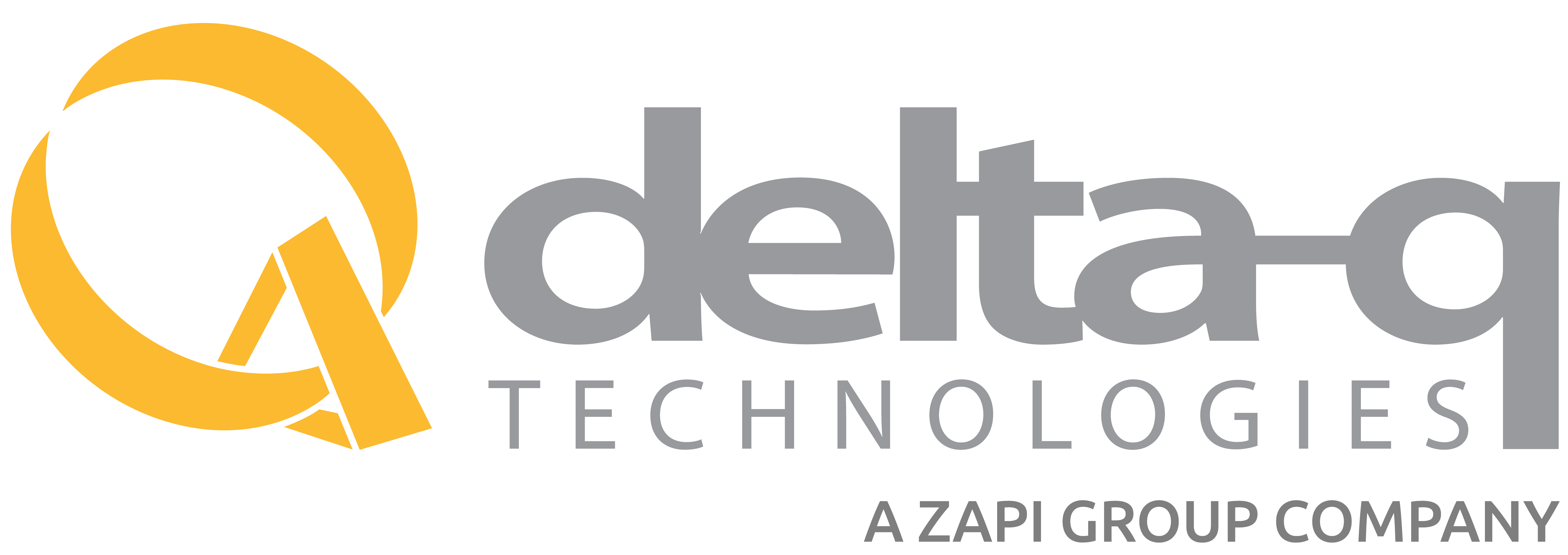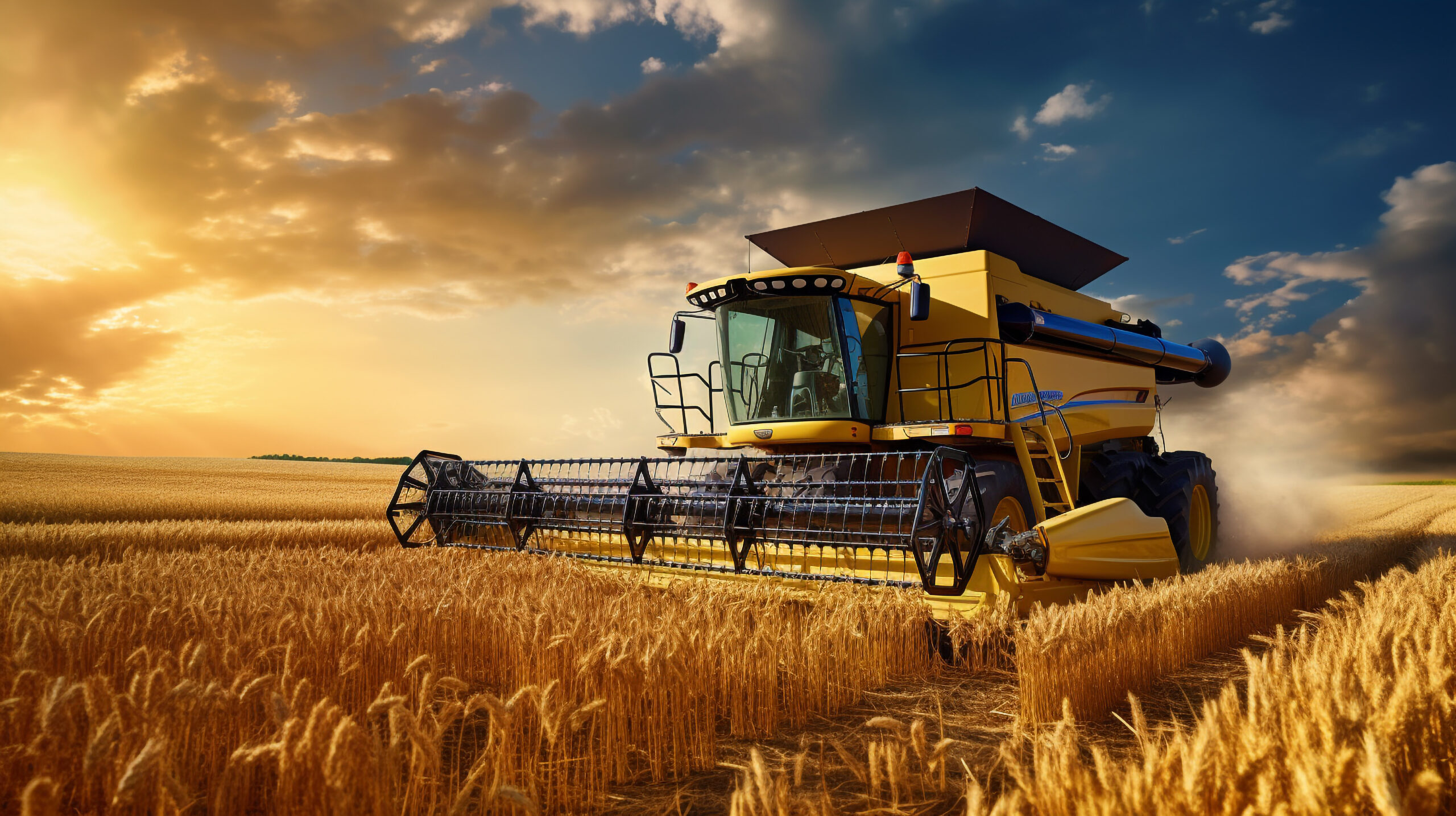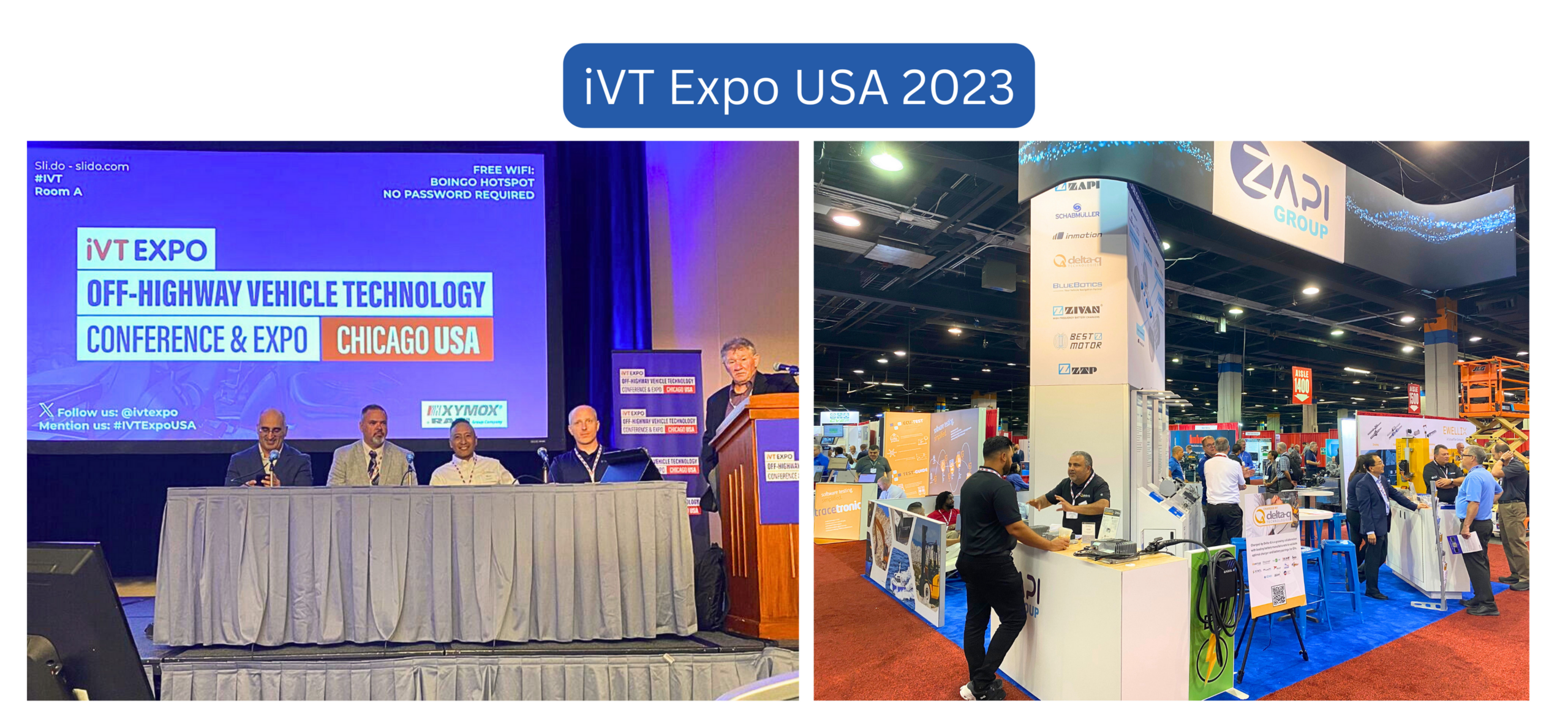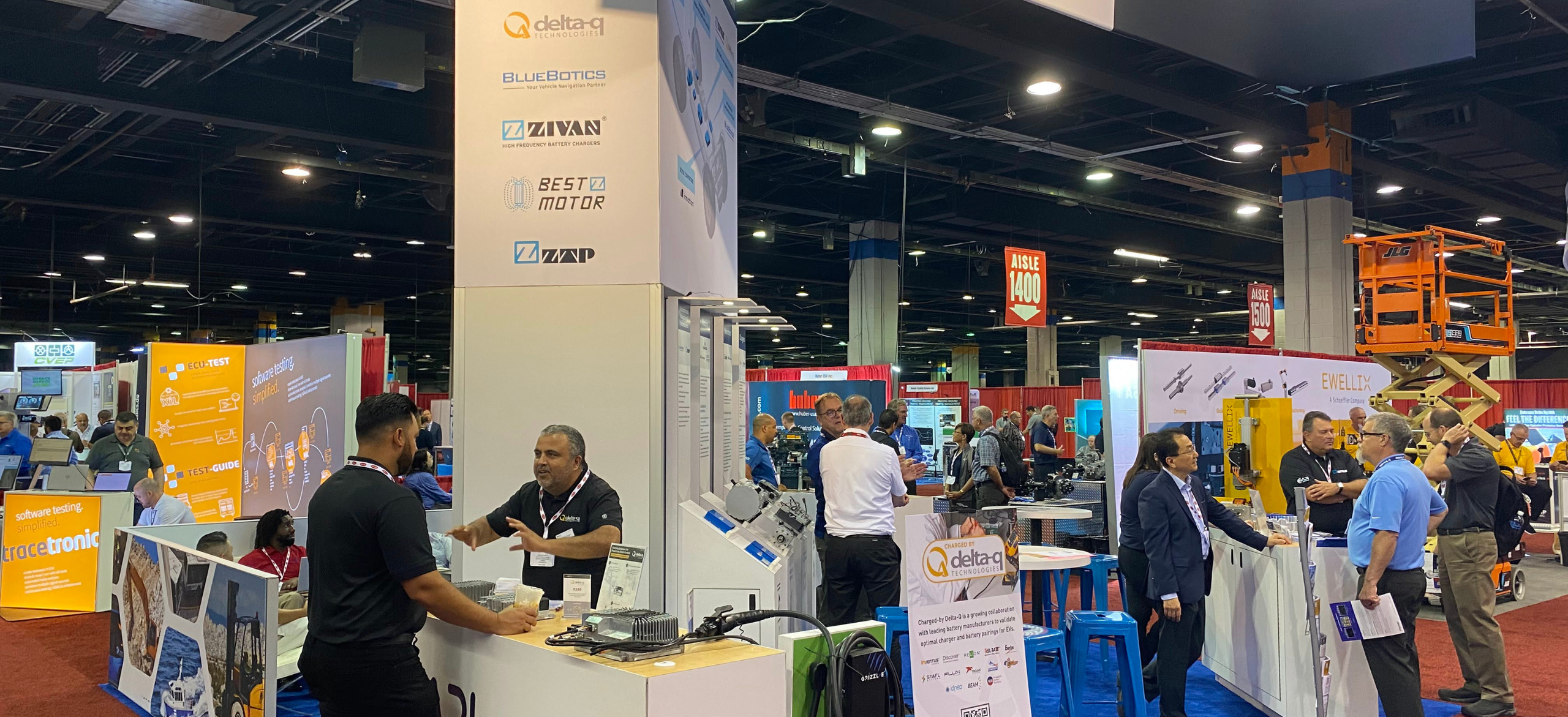Agritechnica 2023, held from November 12-18, was a monumental event in the world of agricultural technology, showcasing a staggering array of innovations and drawing an international crowd of over 470,000 visitors from 149 countries. Proudly exhibiting 2,812 industry experts from 52 countries, the event solidified its status as the world’s leading trade fair for agricultural machinery.
This year’s guiding theme, “Green Productivity,” served as a call to action for industry leaders. The event reminded all that innovation and facilitating widespread adoption remain the keys to sustainably overcoming the challenges of the agriculture industry.
Electrification: Central to Green Productivity
Agritechnica revealed that battery-electric drivetrains continue to deliver the same benefits to agriculture applications as they currently do to construction. Across aerial, compact, and production equipment, the advantages to electrification materialize in:
- Lower overall ownership costs
- Reduced emissions and noise
- Simplified maintenance
By incorporating full or partial electric drivetrains into their equipment, OEMs seek precision agriculture to boost crop yields, lower inputs, and maximize precious resources for sustainable growing.
Combined with advanced automation and data analytics, the innovative technologies behind electrification are paving a path to greener, more productive agriculture.
Early Adopters: Leading the Way in All-Electric Agriculture
Although agricultural production is a major contributor to climate change, greenhouse emission reduction and decarbonization incentives, particularly with regards to agricultural machinery, have been significantly lacking compared to other sectors such as transportation, construction or industry. For instance, the agriculture machinery sector overall trails construction equipment by about four years in adopting electrification—a trend evidenced by the disparity between OEM exhibitors:
- Among the 25 kilometers of displays and exhibits at Agritechnica, the majority of global brands (Tier 1 OEMs) only showcased concept electrical equipment or pilot projects.
- In contrast, nimbler startups and Tier 2 manufacturers demonstrated a diverse portfolio of electric solutions—many already primed for field deployment.
This divergence highlights another possible trend in the industry’s evolution: While larger, more established companies are taking cautious steps towards electrification, smaller and more agile manufacturers are seizing the opportunity to innovate and lead the space.
Such a scenario may help clear up the industry misunderstanding that electrification is already “done” or achieved its maximum potential. By being early adopters of electrified agricultural machinery, Tier 2 OEMs further assist in accelerating the mainstream application of sustainable technologies—filling a current market gap and setting a precedent for legacy OEMs to follow.
Until all-electric solutions see widespread adoption, the majority of agricultural machinery will likely only see partial electrification. Hybrid solutions will continue to implement automation and other smart farming features, promising to optimize global crop production.
How Innovation is Accelerating Industry Trends
The most progress in full-scale electrification is currently found in Outdoor Power Equipment (OPE), primarily used in urban settings, like ride-on mowers and compact tractors. Key industry players exhibited extensive lineups of electrified and hybrid models—indicating that electric OPE equipment will become fixtures in raising livestock, landscaping, lawn care, and municipal park and ground maintenance.
Driven by zero-emission initiatives for urban maintenance and enclosed livestock facility usage, OPE electrification reaching mainstream availability is anticipated to serve as the launchpad towards larger vehicle development.
Based on current trends, OEMs can expect mainstream electrification of:
- Agricultural material handling equipment already happened
- OPE equipment by the end of 2024.
- Small to medium-size tractors and livestock feeding equipment by 2026 to 2027.
- Large tractors for soil preparation, cultivation, and harvesting by 2030 to 2035.
Beyond simply increasing in scale, electrification trends are trickling into increasingly complex applications. A growing contingent of OEMs—including at least six at Agritechnica—exhibited 48V battery-powered aerial spraying drones able to carry 10 to 80 liters of liquids.
Utilizing precision-targeting applications, these autonomous robots significantly reduce waste and minimize worker exposure to chemicals in comparison to broadcast spraying. While initially serving smaller specialty crops and vineyards, continuous improvements to battery densities aim to expand drones’ accessible acreage.
Despite the crystal clear demand and use cases, Agritechnica made it clear that electric solutions remain undervalued in the agricultural sector—with many of the exhibited electric machines repurposed from construction or material handling applications, such as wheel loaders and telehandlers.
Energizing Agriculture: The Role of Battery and Charging Solutions
Among the vibrant activity of agricultural innovations, battery and charging technology stood at the heart of the electric shift.
Delta-Q Technologies, an industry leader in charging solutions and part of the ZAPI GROUP of companies, occupied a booth in System and Component Halls 15, 16, and 17. ZAPI GROUP’s presence at Agritechnica was notable, attracting significant attention through industry-leading expertise in electric drivetrains and full system integration.
At Agritechnica’s specialized Expert Forum presentation, Delta-Q’s Senior Product Manager, Mourad Chergui, teamed up with Inventus Power to deliver real-world best practices, insights, and recommendations that captivated agricultural OEM engineers developing electrified platforms.
The program, “Best Practices in Battery & Charger Integration,” was well-received—with many attendees expressing excitement for this presentation in particular.
This practical discussion spanned the growing importance of electrification despite challenges, such as:
- Enhancing battery power density to meet the demanding energy requirements of heavy machinery.
- Developing and implementing effective charging infrastructures that are both efficient and scalable.
- Proposing a step-by-step approach to machine electrification for OEMs seeking to switch to full or hybrid solutions.
- Avoiding the pitfalls of battery and charger integration based on lessons learned from construction equipment electrification.
With over ten times the prior session’s attendance, the enthusiastic participation highlighted all-electric solutions as a top-of-mind topic in agricultural applications.
By translating proven technologies from construction equipment and materials handling applications into agriculture, associated companies like Delta-Q Technologies and Inventus Power are poised to unlock the full potential of electric productivity.
Such industry expertise will prove crucial in addressing the projected 70% increase in global food consumption by 2025, offering sustainable and efficient solutions to meet this challenge.
Agritechnica: Innovating a Greener, More Productive Tomorrow
While the overall industry adoption curve for electrical solutions stretches well into the 2030s, the innovation on display at Agritechnica 2023 reflects a growing recognition that feeding tomorrow requires revolutionary thinking today.
When the industry reconnects at Agritechnica 2025, innovations shown today will likely already be optimizing productivity for early adopters on their way to mainstream acceptance.
Thanks to the glimpses of that greener future seen in Hannover, the agricultural industry moves one step closer to sustainably nourishing a population of 8 billion people—all while restoring the ecosystems each one of us depends upon.




